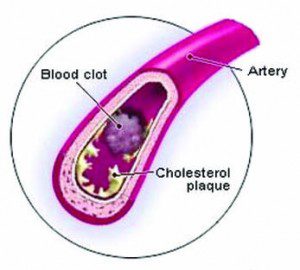By Zorayda “Jiji” Torres, MD, ABIHM, IFMCP Board-Certified, Internal Medicine Certified Practitioner,
Institute for Functional Medicine


Cholesterol is an essential component of our bodies, and unless modified by certain factors, is not harmful. These factors – poor nutrition, hidden infections, stress and poor lifestyle, toxicities, hormone imbalances, and genetics – can bring on chronic inflammation, the common denominator that dictates the behavior of cholesterol and other substances in the body.
The “standard” cholesterol test that everyone gets is not a very accurate test. It gives calculated numbers and thus frequently underestimates the LDL or bad cholesterol, especially when the triglycerides are high.
The “advanced” cholesterol tests, like the VAP or NMR, are much more accurate, as they directly measure the bad cholesterol LDL particles and their sizes, the good cholesterol HDL subfractions and Apo(A), the very important LDL-P or LDL particle number, and the lipoprotein- little-a or Lp(a), a highly sticky cholesterol particle that is mostly inherited.
However, the “advanced” cholesterol tests still do not give you the best available estimate of your risk for a heart attack or stroke. In order to do that, markers of inflammation need to be tested for too.
Here are some of those markers in blood or urine, listed in order of worsening disease. (Pardon the highly technical words, but some people like knowing these details).
1. F2-Isoprostanes – one of the earliest markers of oxidative stress (or rusting) in the body, formed when arachidonic acid is attacked by free radicals; available as a urine test, and can improve with lifestyle changes.
2. Oxidized LDL – measures protein damage due to oxidation of the ApoB subunit on LDL or bad cholesterol. This is the initiating event for plaque formation; elevated levels are associated with development of a high risk condition called “metabolic syndrome”.
3. high-sensitivity C-Reactive Protein – reflects inflammation anywhere in the body, not necessarily just inside your arteries. If no clear cause for persistent elevation of hs-CRP is found, this may mean presence of blood vessel disease.
4. urine microalbumin – reflects dysfunction of the endothelium, the single layer of cells that line the inside of your blood vessels; reflects presence of vascular disease.
5. Myeloperoxidase – an enzyme generated by white blood cells inside the blood vessel when the artery wall is inflamed or damaged; reflects plaque maturation and high disease activity.
6. Lp-PLA2 (or PLAC Test) – is an enzyme that reflects disease activity below or underneath the plaque in your arteries. High levels can mean high risk of plaque rupture which is the acute event that causes a heart attack or stroke.
The 6 markers of inflammation and the “advanced” cholesterol tests are available and can be fully paid for by insurance, depending on your medical condition. A diagnosis of hypertension, high cholesterol, pre-diabetes, or other abnormal blood chemistry may be enough to pay for these (but ask your insurance to be sure). If you are at risk for heart disease (e.g. family history, smoker, obese, have other inflammatory diseases, etc.), you may benefit from these tests too.
Cardiovascular disease is a silent chronic inflammatory process that can present for the first time as a heart attack, stroke, or death. The best time to detect it is when you have a chance to modify your risk factors and avoid morbidity. Do not settle for a good report on a “standard” cholesterol test, even if you exercise or take a statin medication. Be pro-active and ask your doctor to order the “advanced” cholesterol test and other markers of inflammation.
Zorayda “Jiji” Torres, MD
Internal Medicine, Functional Medicine
27499 Riverview Center Blvd, Suite 255
Bonita Springs, FL 34134
239-444-5636 . upstreammd.com
Dr. Torres graduated from the University of the Philippines College of Medicine. She did her Internal Medicine at St. Francis Hospital in Evanston, Il. She has has been in practice for 17 years (in Naples since 2001) and knows the limitations of conventional Internal Medicine. She believes that functional medicine will give hope to many who are suffering from chronic diseases.
 Southwest Florida's Health and Wellness Magazine Health and Wellness Articles
Southwest Florida's Health and Wellness Magazine Health and Wellness Articles
